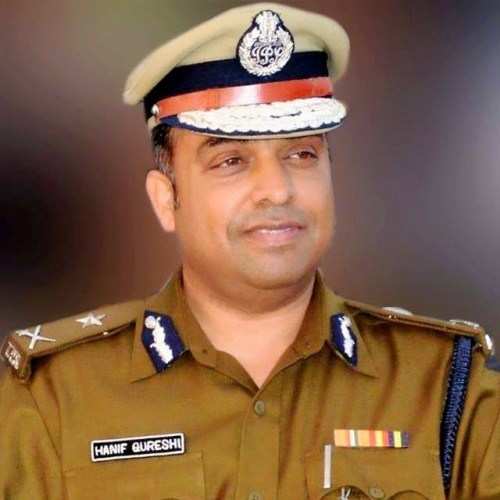Dr. Hanif Qureshi, IPS to mentor Centre for Criminology and Public Policy, India
Dr. Hanif Qureshi, a distinguished Indian Police Service officer, is set to join the Centre for

Dr. Hanif Qureshi, a distinguished Indian Police Service officer, is set to join the Centre for Criminology and Public Policy (CCPP) as a mentor, concurrent with his long-standing efforts to promote research on crime prevention. As part of the mentorship, he will Chair the Evidence-based Policing (EBP) Network, a specialist research group within CCPP, which aims to advance theory, knowledge and practice in policing through rigorous research and evaluation.
With extensive experience in policing, comprising criminal investigations, traffic, intelligence operations, police training, and handling law and order situations, Dr. Hanif Qureshi is also an avid researcher, wherein several articles by him have been published in leading international journals. His research interests include police legitimacy, crimes against women, work-family conflict, organizational citizenship behaviors, criminal justice system reforms and related issues.
Expressing his happiness at finally being able to collaborate with Dr. Qureshi, CCPP’s director and practicing criminologist, R Rochin Chandra said, “we are pleased and very fortunate to have Dr. Qureshi as our mentor. His large experience in both policing and academics will provide a much-needed fillip to our research activities and will transfer a great deal of organizational value to our team”.
On being contacted over email, Dr. Qureshi referred to his association with CCPP saying that, “the linking of academics with practitioners is essential if the findings of research are to make any impact on the daily lives of people. The aim of research must be to make the world a better place to live, and the ones who can make this change a reality are the practitioners.
Towards this end, researchers should make their findings not only easily accessible but also publish in a language which is understood by most people. Similarly, administrators and policy makers must keep their minds open to new ideas and adopt the best possible interventions and practices”.
Pointing out that the rule of law is not only the basis of a civil society but also the bedrock of the constitution of India, Dr. Qureshi, who has been serving in high-ranking positions as IPS officer for two decades said, “in the absence of the rule of law, we would be reduced to the law of the jungle, where might is right”.
“The criminal justice system comprising police, prosecutors, judiciary, and the correctional administration is the most important system which tries to maintain the rule of law. Whether it is crimes against women, white collar crimes, lives lost due to traffic accidents, violent crimes or offences against children, detailed studies are required to find out the weaknesses in the present system and how to fix them.”
Acknowledging CCPP’s potential to improve justice systems, Dr. Qureshi said, “both civil society and criminal justice system is responsible for maintaining sanity and order in the society. Unless these two work in harmony, justice will remain a missed opportunity.”
Throwing light on Dr. Qureshi’s association with the Center, Chandra said, “as a think-tank, CCPP constantly looks for opportunities to connect research evidence with practice. For instance, last year, CCPP released a comprehensive policy proposal to promote police-researcher partnerships for reducing crime and protecting public.
Noting the positive impact of this proposal, the Center eventually decided to create a specialist network called Evidence-based Policing (EBP), and invited Dr. Qureshi to spearhead the network’s research and consultancy activities. Responding to this opportunity with enthusiasm, Dr. Qureshi readily consented to lead the EBP Network, and proposed an action plan to facilitate evidence-based contributions to policing policy and practice”.
“We are confident that CCPP’s EBP Network will break down the barriers between research and practice by creating a dynamic interface between academic criminologists and police practitioners”, Chandra added, while lauding Dr. Qureshi as an IPS officer who understands the need to apply criminology’s growing body of knowledge to criminal justice policy and practice.
Dr. Qureshi holds a PhD in Criminal Justice from the University of Cincinnati, USA, where he also taught courses in Criminology and Policing as adjunct professor and distance learning facilitator for two years until 2015.
Known for his police acumen, Dr. Qureshi is one of the most influential Tedx speakers and a celebrated public intellectual.
Authored By:
Raaghavi Senthil – Assistant Policy Researcher at the Center for Criminology & Public Policy, India
To join us on Facebook Click Here and Subscribe to UdaipurTimes Broadcast channels on GoogleNews | Telegram | Signal


